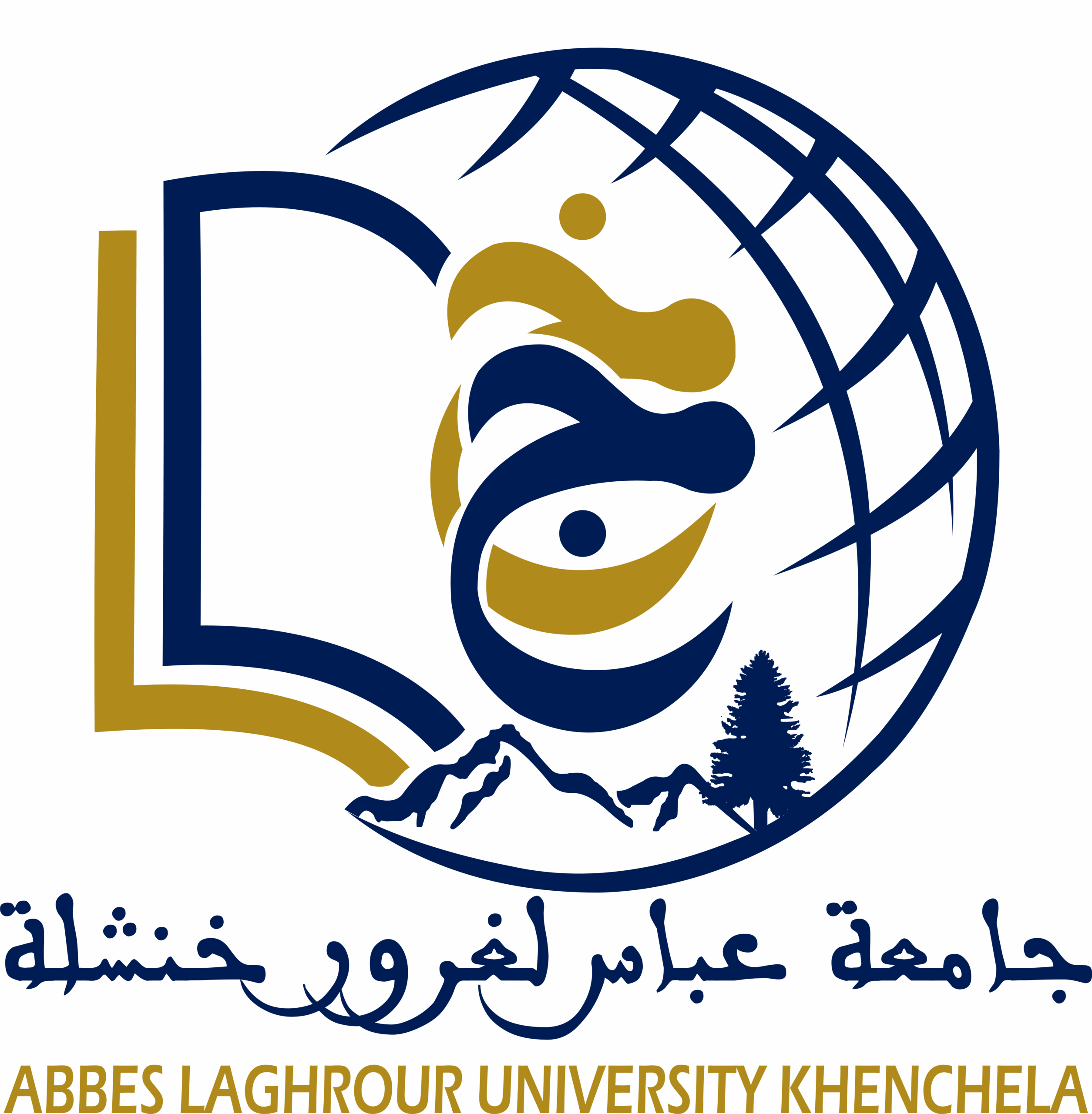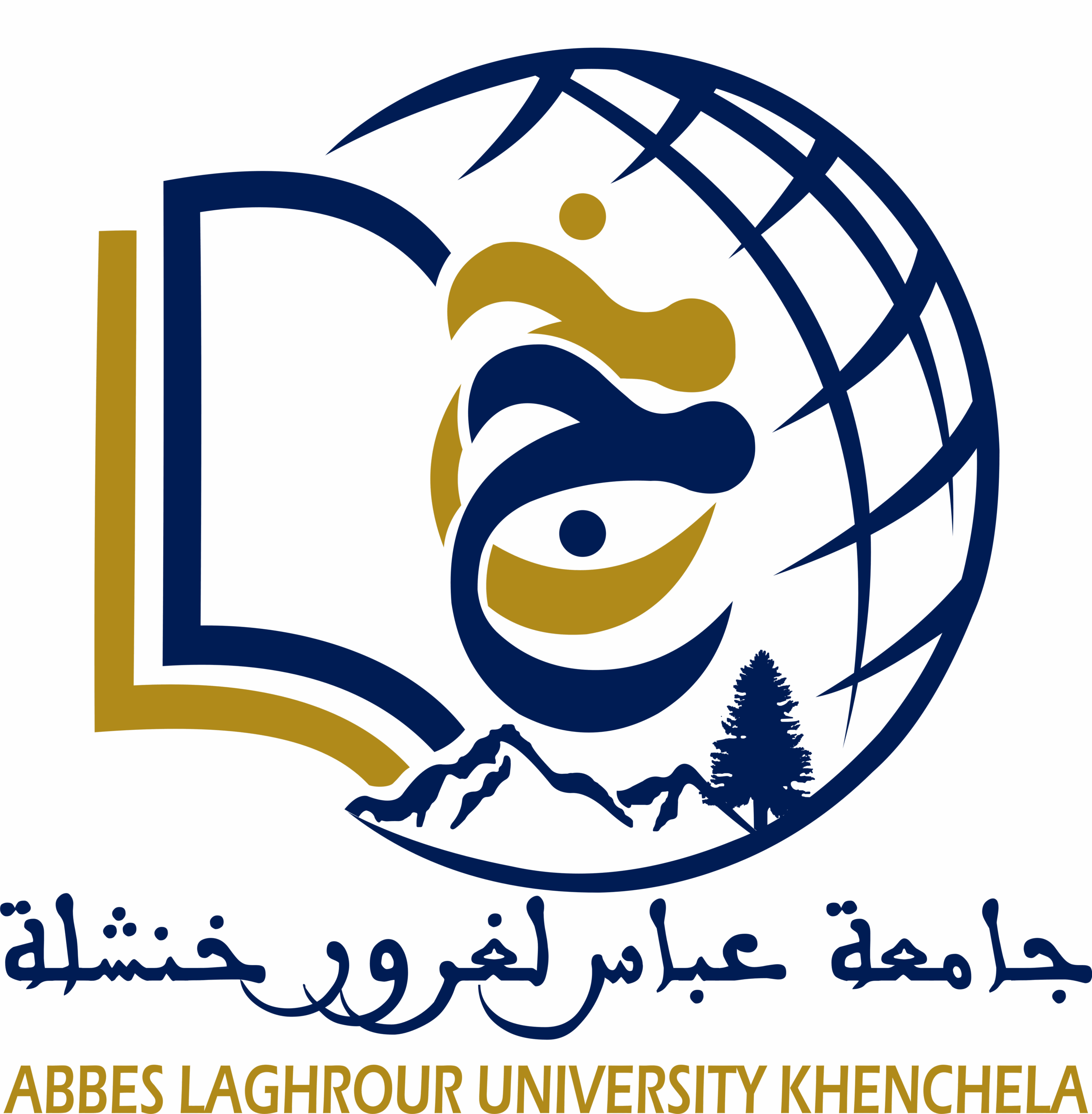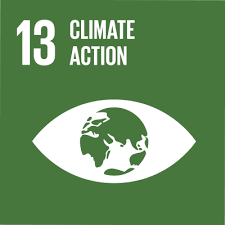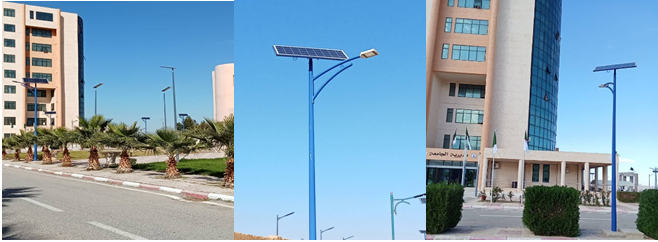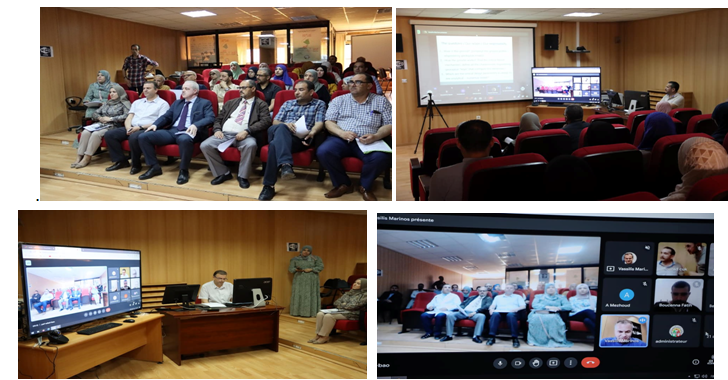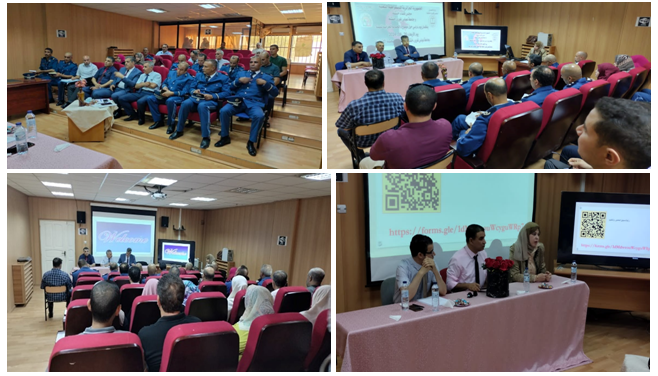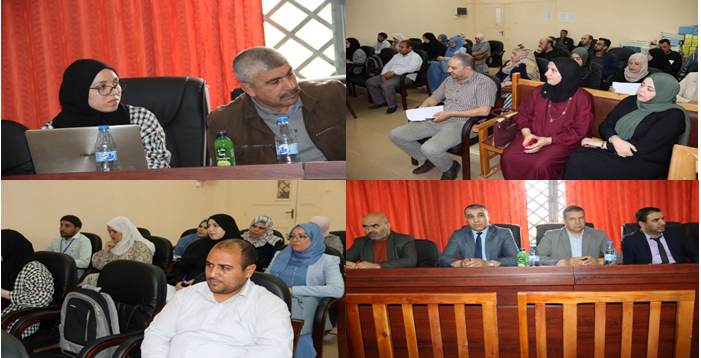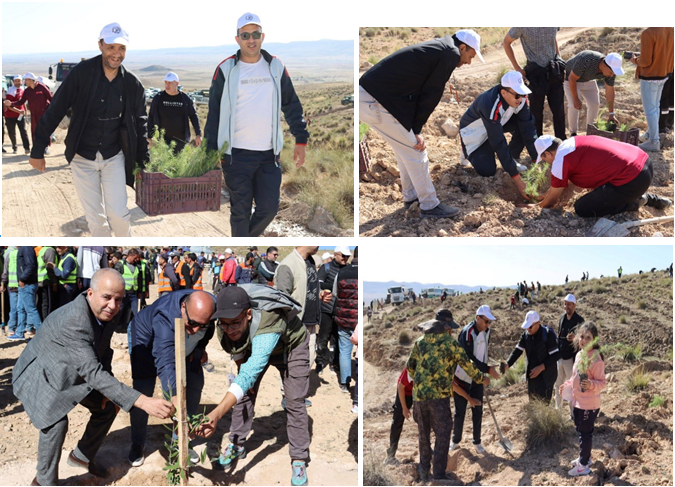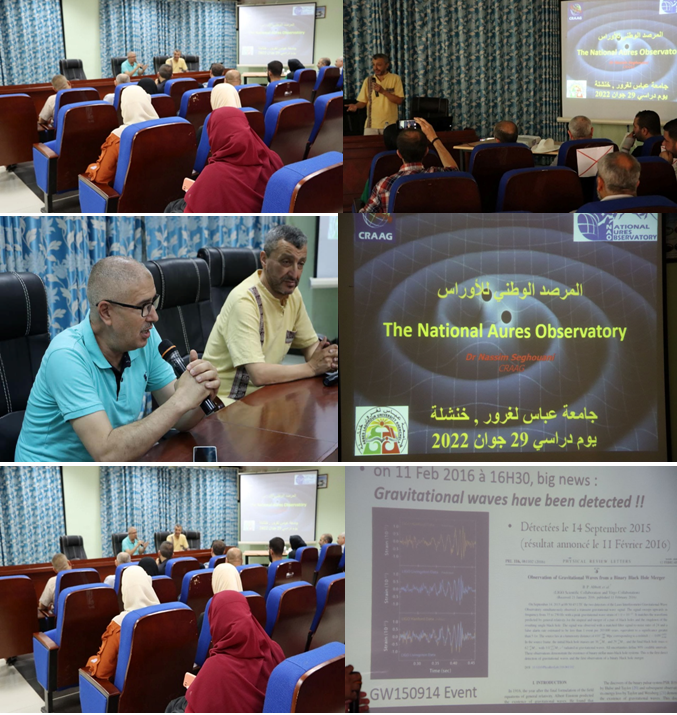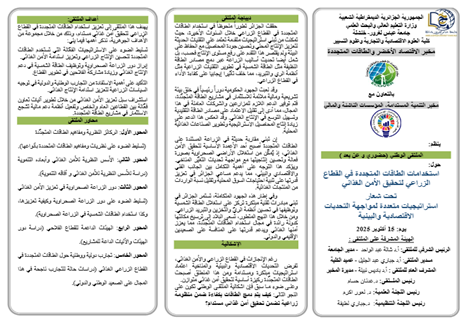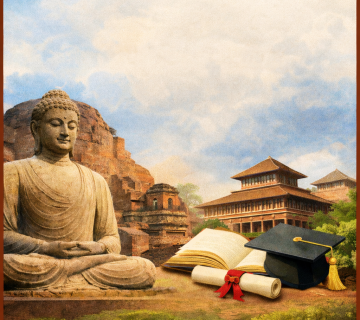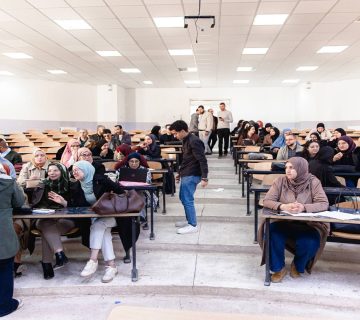13-02 Use of Low-Carbon Energy
13-02-01
Does your university, as an institution, measure the amount of low-carbon energy used on campus?
Yes, the university measures the amount of low-carbon energy by monitoring electricity consumption generated from renewable sources. It also places great emphasis on conducting specialized scientific research in the field of renewable energy.
- A study by S Boudjaza, A Chehhat, A Kaddour, Y Menni, S Larguech, BM Alshammari, L Kolsion
Three-dimensional thermomechanical modeling of geothermal energy piles with U-tube heat exchangers of different cross-sectional shapes
- A study by HD Nedjari, S Louassaa, S Kheder, I Lgoul
Multi-objective optimization of windy sites in east region of Algeria
- A study by A Nedjah, R Boukadir, K Boudjehich
Producing electricity from solar energy in Algeria is a strategic alternative to securing traditional energy supplies.
13-02-01-01
Total energy consumed: 51,500 kWh per year.
13-02-01-02
Total energy consumed from low-carbon sources: 51,500 kWh per year.
Photos : Solar Panels at Abbes Laghrour University Khenchela
13-03 Environmental Education Measures
13-03-01
Does your university, as an institution, offer local educational programs or campaigns on the risks and impacts of climate change, as well as on mitigation, adaptation, impact reduction, and early warning?
Yes, Abbes Laghrour University Khenchela organizes awareness programs and seminars on the risks and impacts of climate change and encourages research in the fields of mitigation, adaptation, and the use of renewable energy.
Photos: A study day at the Faculty of Science and Technology on the topic “Power Converters for Modern Wind Turbines”, presented by Dr. and Engineer Shaal Hamza, an employee at Siemens, UK, invited by the Dean of the Faculty, Professor Abboudi Abdelaziz, and under the general supervision of the University President, Professor Shala Abdelwahid.
13-03-02
Does your university, as an institution, have a university climate action plan that is shared with the local government and/or community groups?
Yes, Abbes Laghrour University Khenchela has a university action plan addressing climate and environmental sustainability issues, which is shared and discussed with local authorities and civil society through seminars, awareness activities, and relevant research projects.
Photos: Under the presence of the University President, Professor Shala Abdelwahid, along with the Vice Presidents and Deans of the Faculties, the Faculty of Natural and Life Sciences at Abbes Laghrour University Khenchela organized the First International Conference titled “Climate Change, Natural Resources, and Sustainable Development.” The conference was chaired by Dr. Boulebaiz Mehrez and saw the participation of several national and international universities, including institutions from Tunisia, Saudi Arabia, and Greece.
Photos: A study day on Criminal Protection of the Environment was organized as part of the implementation of the cooperation agreement between the Khenchela Court Council and Abbes Laghrour University Khenchela at the Faculty of Law and Political Science.
13-03-03
Does your university, as an institution, participate in collaborative planning to address climate-related disasters, which may include internal and cross-border displacement, by working with the government?
Yes, Abbes Laghrour University Khenchela participates annually in collaborative programs and activities with local authorities and government agencies, aiming to address the impacts and challenges of climate change, including droughts and floods, through scientific seminars, awareness initiatives, and joint planning to enhance disaster response and adaptation.
Photos: A doctoral seminar at the Faculty of Law and Political Science highlighted the importance of Algeria’s current national direction and the supervising ministry’s focus on renewable energy, addressing climate change issues, and defining legal responsibilities, as these are considered threats to environmental security. The seminar also examined the positive and negative impacts of technological developments on sustainable development, reviewed efforts to address environmental problems, promoted sustainable management of natural resources, encouraged smart cities, and emphasized the use of artificial intelligence in environmental protection.
Photos: The Abbes Laghrour University Khenchela community participated in the national tree-planting campaign in the Jebel El Jehfa area, Babar Municipality, Khenchela Province, for a greener Algeria.
https://www.univ-khenchela.dz/فعاليات-حملة-التشجير-الوطنية
13-03-04
Does your university, as an institution, notify and support the local or regional government in early warning and monitoring regarding local climate-related disasters/risks ?
Yes, through research outputs, graduation theses, PhD dissertations, and conference summaries and presentations organized by the university.
- A study by Khaldia Si Tayeb, Belgacem Houha, Miyada Ouanes, Valles Vincent, Abdelghani Elhoussaoui, Maurizio Barbieri & Tiziano Boschetti on: Identification of the hydrogeochemical processes and assessment of groundwater quality using Water Quality Index (WQI) in semi-arid area F’kirina plain eastern Algeria
- A study by Tellil, B., Sedrati, A., Houha, B., Ouanes, M., Bouchema, N., Kacha, N., … & Diaconu, D. C. D on Assessment of groundwater quality in the Sabkhat Elmahmel basin, Khenchela (Northeast Algeria) using the Groundwater Pollution Index (GPI) and the Nitrate Pollution Index (NPI)
- A study by Hiba, M., Naouel, D., Belgacem, H., Cherifa, B., Younes, H., Rim, M., … & Tarek, D on : Assessment of groundwater vulnerability in a semi-arid basin: a comparative study of DRASTIC and SI methods (case study of Boulefreis Wadi watershed—northeast Algeria)
- A study by Dali, N., Ziouch, O. R., Dali, H., Daifallah, T., Cherifa, B., & Sara, H. on: Remote sensing, and (GIS) approach, for morphometric assessment and sub-watershed prioritization according to soil erosion and groundwater potential in an endorheic semi-arid area of Algeria
Research Projects (PRFU)
- Studies on Climate Change and Its Impacts:
These studies focus on understanding climate change and its various effects on the environment and society. They include data analysis and climate modeling, providing assessments of potential impacts on agriculture, water resources, and public health. They also address changes in ecosystems and how living organisms adapt to them.
- Research on Emission Reduction:
These studies aim to explore strategies and technologies for reducing greenhouse gas emissions. Projects include analyzing emission sources within the university and the broader community, and providing recommendations to improve energy efficiency and promote the use of renewable energy sources.
- Climate Adaptation Projects:
These projects involve developing strategies to adapt to the effects of climate change, focusing on enhancing adaptive capacity within local communities. This includes improving water resource management, developing sustainable agriculture, and strengthening preparedness for natural disasters.
13-03-05
Does your university, as an institution, collaborate with non-governmental organizations on climate adaptation?
Yes, the university collaborates with several non-governmental organizations in areas related to climate change adaptation through participation in research projects, awareness activities, and scientific seminars aimed at promoting environmental sustainability.
Photos: A study day titled “The National Observatory of the Aurès” organized by the Faculty of Science and Technology at Abbes Laghrour University Khenchela, attended by Dr. Abboudi Abdelaziz, Dean of the Faculty, and presented by Dr. Segwani Nassim (Research Director in Astrophysics and High-Energy Physics at the Research Center for Astronomy, Astrophysics, and Geophysics).
13-04 University Commitment to Carbon Neutrality
13-04-01
Does your university, as an institution, have a target date to become carbon neutral according to greenhouse gas protocols?
Yes, the university is developing a strategic plan aimed at achieving carbon neutrality in accordance with greenhouse gas protocols. It seeks to set a target date by promoting the use of renewable energy sources and improving energy efficiency on campus.
The university also hosts a research team on Economics of Renewable Energy, led by Dr. Imad Tekwasht within the Green Economy and Renewable Energy Laboratory. The team’s objectives include:
- Conducting in-depth studies on renewable energy to preserve the environment and achieve sustainable local development.
- Studying the economic and social feasibility of investing in renewable energy by evaluating available potentials.
- Focusing on the main pillars of the strategy for transitioning from fossil fuels to renewable energy and identifying factors for its success, especially at the national level.
- Highlighting the role of renewable energy in Algeria, reviewing key projects and strategies implemented to achieve future goals beyond traditional energy, and proposing suitable solutions for developing solar energy reliance.
https://www.univ-khenchela.dz/فرقة-البحث-02-اقتصاديات-الطاقات-المتجدد
https://univ-khenchela.com/الاقتصاد-الأخضر-والطاقات-المتجددة-297
Photo: A national forum titled “Uses of Renewable Energy in the Agricultural Sector to Achieve Food Security” under the theme “Multiple Strategies to Address Economic and Environmental Challenges.”
https://www.univ-khenchela.dz/events/ملتقى-وطني-بعنوان-استخدامات-الطاقات-ا
THE 13-2-1 THE 13-3-1 THE 13-3-2 THE 13-3-3 THE 13-3-4 THE 13-3-5 THE 13-4-1